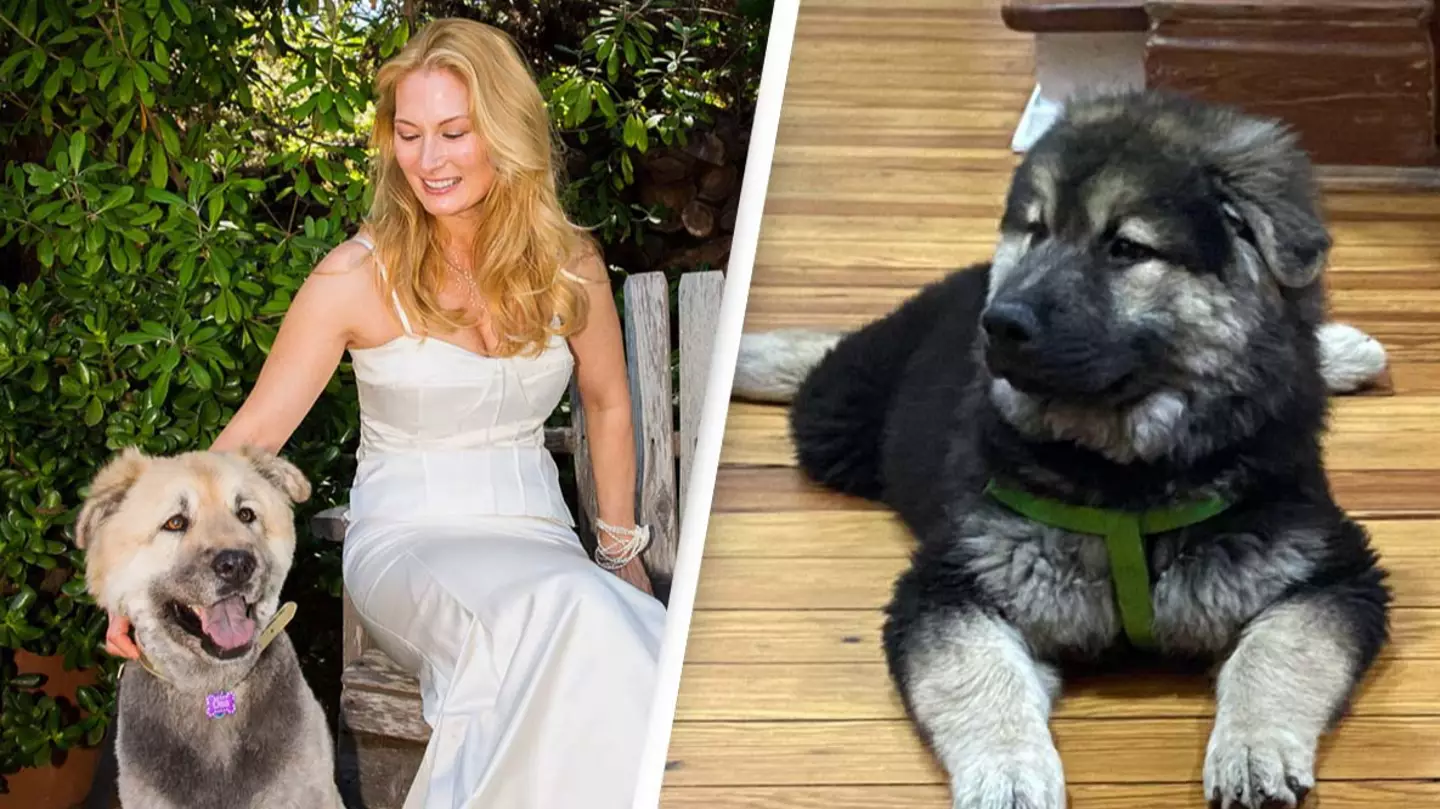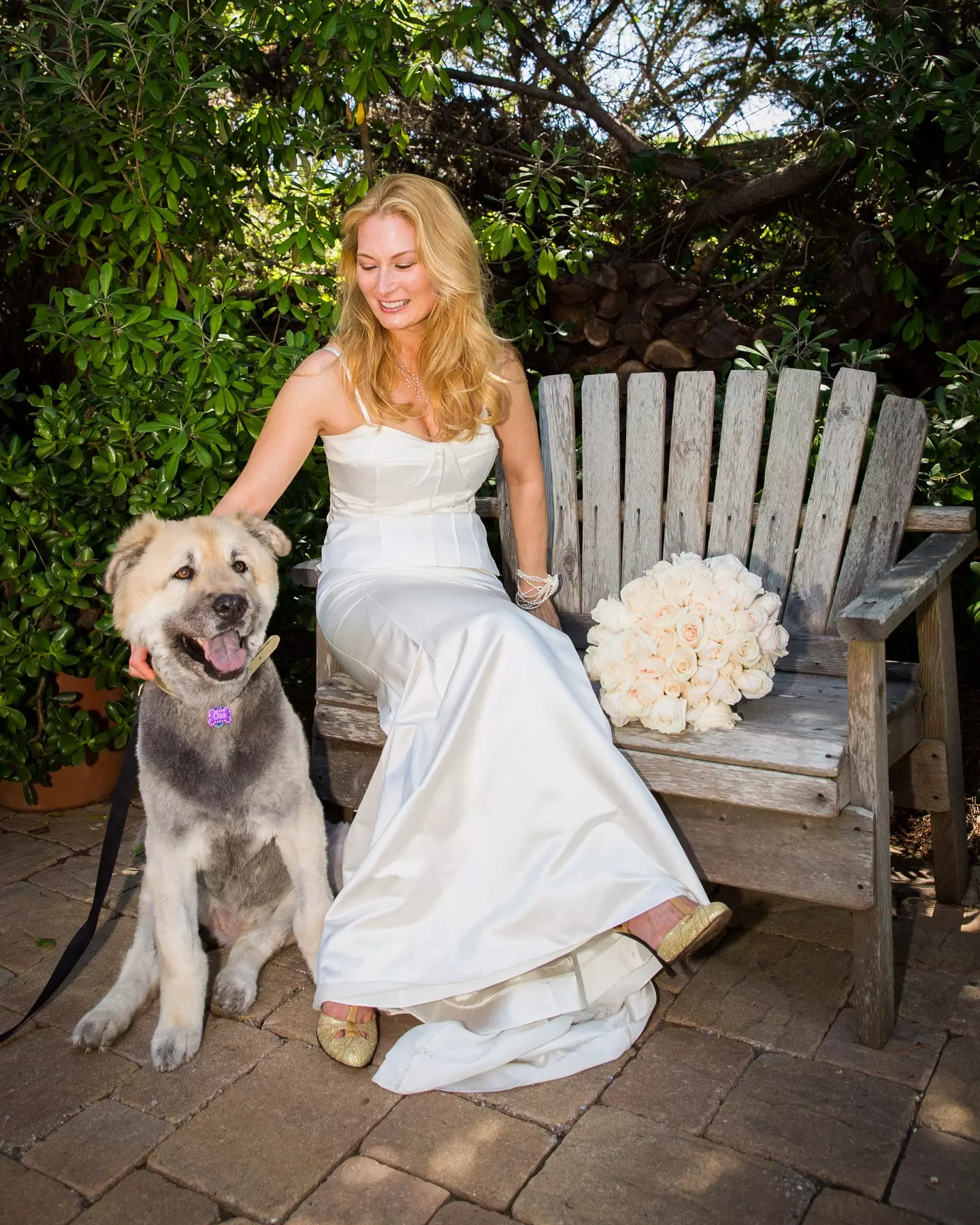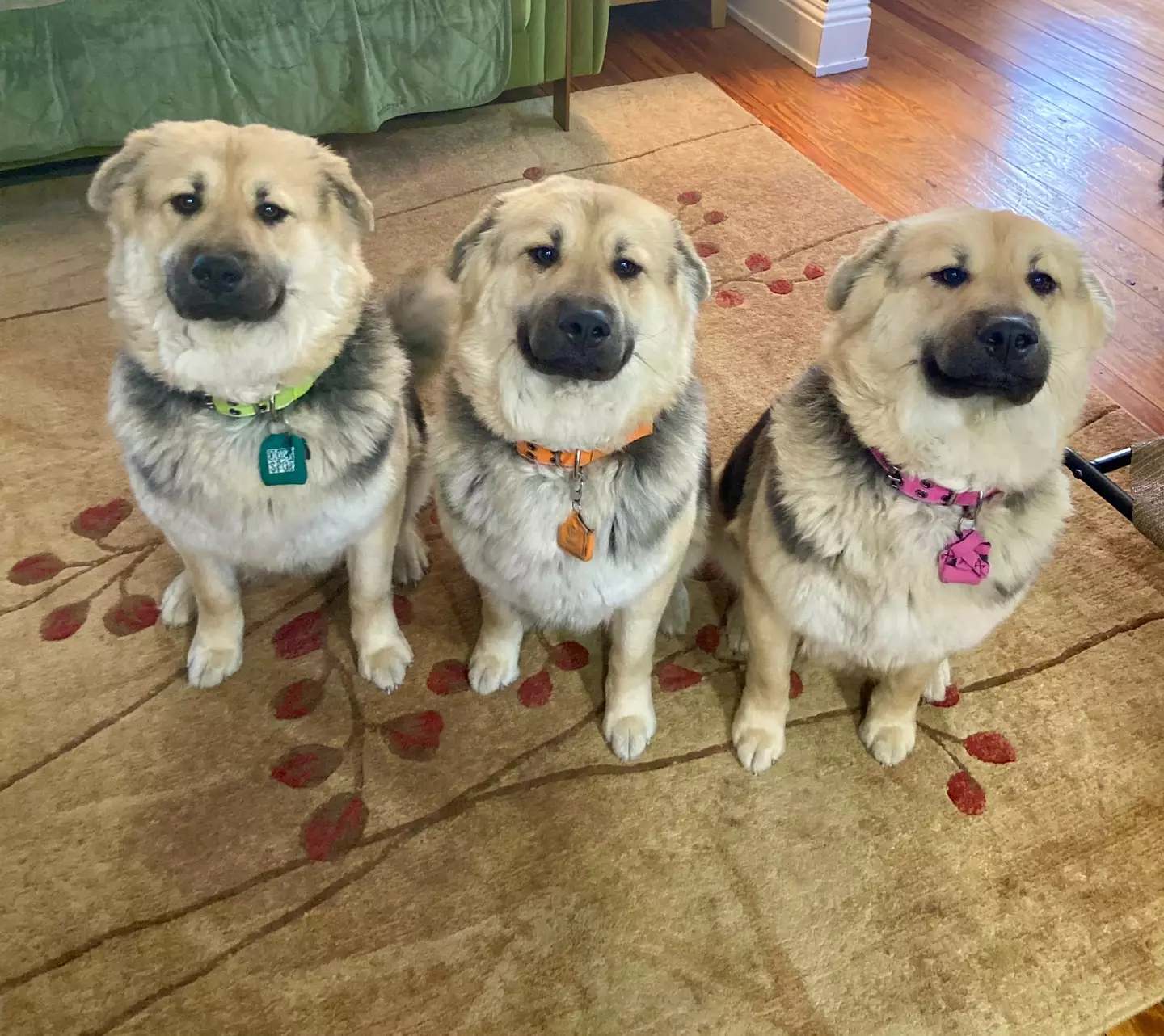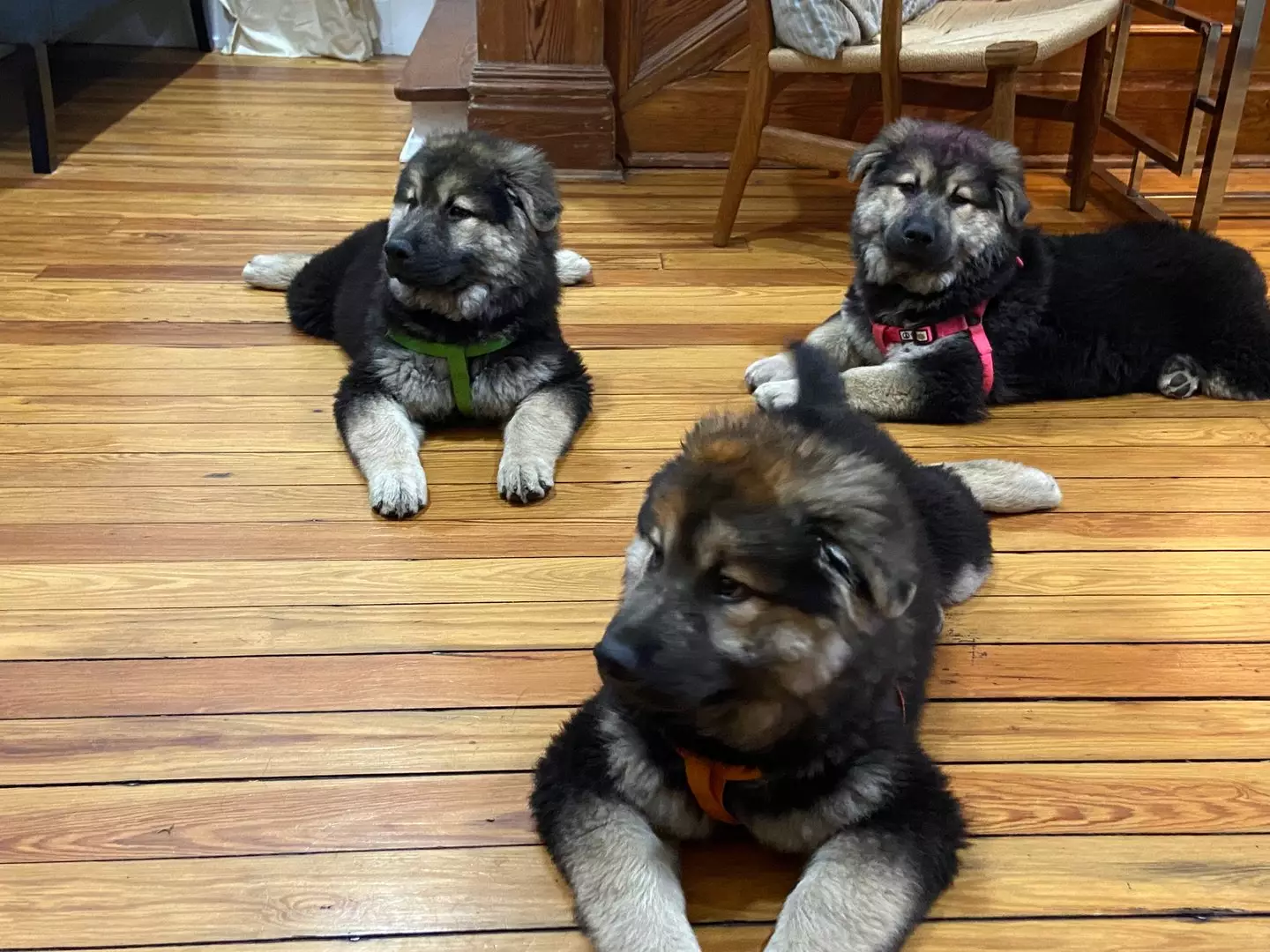
A woman who spent $50,000 cloning her dead dog is one of a growing number of pet owners investing in identical versions of their beloved animals.
Francesa Geertsma, from Florida, was left 'devastated' after her dog Osa passed away from canine cognitive disorder - often called dog dementia - in 2019.
Unable to say goodbye, she contacted a company specialising in pet cloning, and just 18 months later was presented with three genetically identical clones of Osa, grown from cells taken from behind the ear of her original dog shortly before her death. See the pups in action in the video below:
Advert
She said: "The thought of losing such an amazing dog was so unthinkable to me and I decided to revisit the idea of cloning only a few months before her death."
Francesca explained that as a 'super-mutt' of five different breeds she knew it would be hard to find a similar dog bred naturally.
"I'm so happy – they are identical to my Osa in appearance,” she said of her three new pets, Osana, Osaki and Osani.
"Our girls are a joy. They are Osa and more to me now.
"I must admit three clones turned out to be more work and stress than I had planned for, but ultimately it was a blessing."
According to the BBC, pet cloning has been growing in popularity in recent years, with one company reporting that it has cloned 'hundreds' of pets for clients since it opened in 2015.

The process is pricey, costing from $30,000 for a cat, to $50,000 for a dog and even up to $85,000 for a horse.
It's also controversial, with animal rights activists critical of the process citing studies that suggest cloned animals may be more prone to disease, with an average success rate of only around 20 percent.
"There is so much more to an animal than their DNA, and cloned animals will inevitably have different life experiences, resulting in animals with different personalities," RSCPA animal welfare expert Dr Penny Hawkins told the BBC.


"We would recommend anyone looking for a new pet to become part of their family to adopt one of the thousands of animals in rescue centres looking for their forever home."
In spite of the controversy, Francesca says that her new dogs are 'worth every penny' of the $50,000 she spent, but has warned others considering cloning their own pets to be aware that aside from physical similarities, the clones 'will not be a reincarnation of your former pet'.
"They are of course different from [Osa] in many ways," she said of her clones, "but when you least expect it, a little mannerism you had forgotten about shows up."
If you have a story you want to tell, send it to UNILAD via [email protected]
Topics: Animals, Science, World News
